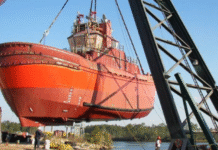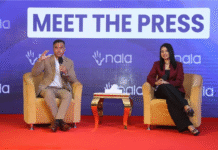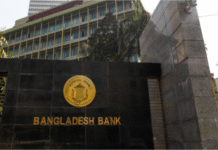
“The next budget should be flexible and result-oriented so that its benefits become much higher reaching more people,” said Dr Mustafa Kamal Mujeri while sharing his thoughts with UNB correspondent Golam Moin Uddin on the next national budget to be placed in Parliament on June 6.
This will be the last budget of the present Awami League-led grand alliance government, which won’t get the entire fiscal year of 2013-14 to implement it.
Mujeri said a new government that will assume office in the middle of the next fiscal year will find it easy to implement a flexible budget.
Side by side, he underscored the need for giving more priority to the next Annual Development Programme (ADP) on the ongoing projects which are in advanced stages by not going for too many new projects.
Putting emphasis on giving due priorities to sectors like, power and energy, education, health, social safety net programmes and communication, Mustafa K Mujeri, also the Director General of Bangladesh Institute of Development Studies (BIDS), said that the government should prioritize those areas which are considered more as barriers towards development.
Terming attracting more Foreign Direct Investment (FDI) as a major driving force of the economy, he said that the country’s investment ratio to the GDP for the last 5-7 years has been hovering around 25 percent with the increase of the public investment in the last two to three years.
“But, investment by the private sector almost remained stagnant although it is the main driving force of making investment,” Mujeri said adding that the government has not been able to attract such private investment for which it would be tough to attain the growth target alongside other development targets.
In this regard, the economist suggested for improving the overall investment environment of the private sector apparently improving the country’s economic, political and social environment.
The BIDS director general also stressed the need for increasing the public investment to meet the energy and infrastructure deficits.
Although the country’s existing FDI policy is liberal, but the reality is different as still there are specific barriers towards making investment like it often becomes tough to get lands, he said.
Dr Mujeri opined that the government should take strong initiative for decentralizing investment not only containing it to in and around capital Dhaka, but to include northern and southern region of the country. “Special attention should be given to SMEs and labour-intensive sectors while making investment,”
About the GDP growth trends, he said that the country has been eying for achieving 8 percent growth by FY15 as per the Sixth Five-Year Plan, but still the rate is ticking over six percent. “We’ll have to speed up the GDP growth through changing its downtrend.”
The GDP growth rate in FY12 was 6.4 percent down from 6.7 percent in FY11.
Asked about the recent political unrest, Mujeri noted that as soon as the political crisis is resolved it would bring better results for the country as political uncertainty triggered by frequent shutdowns harms all kinds of economic activities and thus affect GDP growth.
“Apart from image crisis abroad, political uncertainty will also deter our long-term development efforts and many losses might occur, which could never be compensated,” he said.
Figuring out some key challenges, the BIDS director general said that the government is yet to fully overcome the obstacles in the energy sector although a major chunk of subsidy goes to it.
He said that the use of liquid fuels like diesel and furnace oil has increased the cost of power generation over the years. As a result, the government had to go for price adjustments time and again increasing burden on the common people.
To improve the present conditions, Mujeri suggested giving more attention towards the medium and long-term plans in the energy sector as well as going for more coal-based power generation.
He also recommended taking decision as early as possible on the method of coal extraction.
About the government’s move for implementing the Padma Bridge project with own funding, the renowned economist said that everything will depend on how the government mobilizes the resources for the project in the next and the subsequent budgets.
He also mentioned that the government might collect funds for the Padma Bridge through issuing sovereign bond. But, it might increase the project cost as the interest on the bond would be higher compared to the lending agencies like the World Bank.









